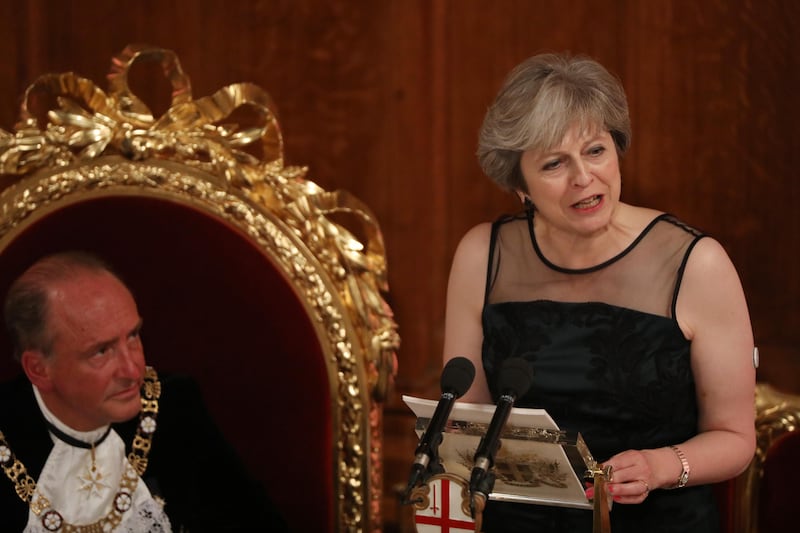The reforms in some of the Gulf countries have been praised by the UK's prime minister in a speech in London.
Speaking at the Lord Mayor's Banquet, Theresa May pledged the UK government would honour a long-term commitment to Gulf countries looking to transform their social and economic futures.
She said: “Drawing on the full capability of government and private sector, we make a long-term commitment to work with our partners as they seek to reform their own economies… [such as] countries across the Gulf undertaking social and economic transformation”.
"For these reforms can present far-reaching opportunities for the people of the region and the wider world," Mrs May said .
Delivering her wide-ranging speech in the splendour of the historic Mansion House, Mrs May stressed that she believes this offer of support from the UK comes at an important time.
“This credible and coherent offer of support and partnership is a matter of urgency. As we see with the events of the last few weeks, from Lebanon to the GCC dispute, our partners see the threats they face as immediate and are straining for the means to tackle them,” she said.
“So it is in all of our interests to get this right: to bring long-term, long-sought stability to the Middle East, ensure these growing economies can play their full role in the global system, and reinforce a rules-based international order.”
______________
Read more
[ European Union signs landmark new defence pact ]
[ Husband of Briton in Iran jail rejects calls for UK foreign minister Boris Johnson to resign ]
[ Saudi says coalition will begin reopening Yemen air and seaports ]
______________
She outlined the parameters of this relationship between the UK and the Gulf, saying the UK respects that each country has its own vision of its future and methods of getting there, but that Britain will try to influence the shape of these changing social reforms.
“As part of these efforts, we will champion steps towards greater rights and openness – insistent on the direction of travel, working with our partners in the region and recognising that each country must find its own path,” she said.
"But as we look to the future, it is the strength and stability of our partners that will define the trajectory of the region," she said.
She noted that the UK provides support to countries, including Saudi Arabia, in order to help defend and protect their borders and their cities from aggression - from terrorists to Iranian-backed proxies.
“We will step up our efforts - together with our European and American allies - to help them not just contain, but solve conflicts in the region. From seeking political solutions in Yemen and Libya, to bolstering a united Iraq and working towards a two-state solution in the Middle East Peace Process,” she said.
Separately, she delivered what she described as a "very simple message" for Russian president Vladimir Putin.
Citing the use of disinformation and cyberwarfare as well as Russia's alleged meddling in elections as proof of the country's attempts to "undermine free societies", Mrs May said she wants a new security treaty with the EU after the UK leaves in 2019 in order to counter the threat posed by Russia.
She warned that the Russian president must chose a “different path” to his recent behaviour, and that the UK did not want "perpetual confrontation" with the foreign power, but is unafraid to protect its interests.
Mrs May also noted the crisis in Myanmar, saying authorities must take "full responsibility" for what "looked like ethnic cleansing" of the Rohingya people.






